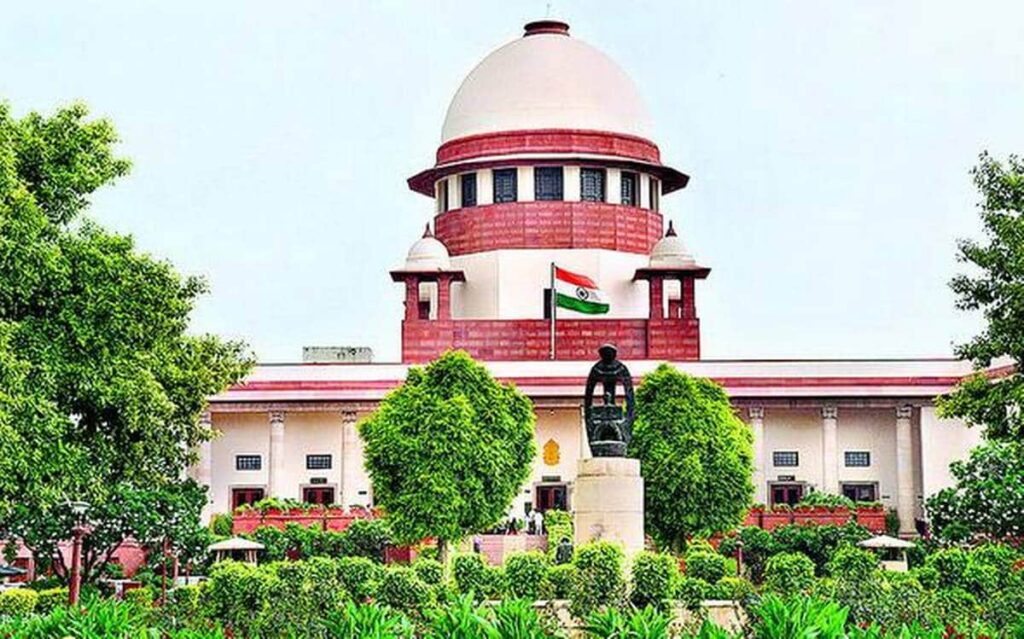Manas Dasgupta
NEW DELHI, Nov 28: The simmering tension between the judiciary and the government over the judicial appointments went up to new heights on Monday when the Supreme Court took to task the union law minister for its adverse remarks on the Collegium System.
The Supreme Court Bench of Justices Sanjay Kishan Kaul and A.S. Oka expressed strong disapproval of law minister Kiren Rijiju’s comments over the Collegium system of the top court, saying the remarks should not have been made.
Rijiju, a relentless critic of the opacity of the Collegium system, while participating in a summit organised by a news channel last week fired a fresh salvo aimed at the apex court stating, “Never say that the government is sitting on the files. Then don’t send the files to the government. You appoint yourself, you run the show then.”
Referring to news reports over this, Justice Kaul without naming the law minister, said, “Let them give the power. We have no difficulty…I ignored all press reports, but what he says, that when somebody high enough says let them do it themselves, we will do it ourselves, no difficulty… It came from somebody high enough. Should not have. All I can say is should not have happened”.
Solicitor General Tushar Mehta urged the court not to go by media reports.
Justice Kaul responded, “It’s an interview…with an interview, it becomes difficult to deny what you have said yourselves”. He added, “I’m not saying anything. I’m just expecting both the Attorney General and Solicitor General to play the role of a law officer….to advise the government to ensure that the law of the land as laid down by this court is observed”.
The bench was hearing a contempt plea by the Advocates Association of Bengaluru which said the government was yet to approve 11 names reiterated by the Supreme Court Collegium, in violation of the norms laid down by the top court.
The Supreme Court linked the bitter failure of the National Judicial Appointments Commission (NJAC) to the government’s willingness to “cross some Rubicons” and take on the judiciary by delaying Collegium recommendations. Mr. Rijiju has been criticising the Collegium system in several public fora, mentioning how the NJAC could have provided a transparent alternative. The Supreme Court had struck down the NJAC, which gave the government an equal say in judicial appointments to the constitutional courts, in 2015. The judgment had revived the Collegium system of judicial appointments.
“There appears to be an unhappiness in the government of the fact that NJAC did not muster the constitutional mandate… That cannot be the reason to not comply with the law of the land,” the bench said. The Supreme Court had responded by accusing the government, in a judicial order, of using silence and inaction as a ploy to compel the withdrawal of consent by eminent persons considered for judgeships in the constitutional courts.
The Constitution Day-eve function had seen Chief Justice D.Y. Chandrachud make a pointed remark that judiciary and government would not be able to work together to appoint good judges if they spent time finding fault in each other.
On Monday, Justice Kaul told Attorney General R. Venkataramani that the government was “effectively frustrating the method of appointment.” Names have been pending for a year and a half. Some of them had been originally recommended way back in 2019 and still not cleared by a government which remains incommunicado.
The court accused the government of picking and choosing names from the Collegium list. “What happens is this completely destroys the seniority. The Collegium while sending names keeps many factors in mind,” Justice Kaul said. The court said it was plainly “anguished” by the government’s attitude.
“It [government] is crossing some Rubicon by keeping these names pending like this… It cannot go on like this… We went on thinking that things will improve, that it will improve… But for the past two months, everything has come to a complete standstill, whether it is appointments to the High Courts or to the Supreme Court,” Justice Kaul observed.
The court said 20% of the judicial posts in High Courts were vacant. Justice Kaul, who is the second senior-most Supreme Court judge and a Collegium member, said Chief Justices of several High Courts have complained about lawyers unwilling to accept invitations to the Bench because of the uncertainty posed by the government’s inaction.
Mr. Singh said the court should issue contempt notice against the government. “There is no need to be rhetorical,” the AG snapped. “What rhetorical? Are you saying following the law of the land is rhetoric?” Mr. Singh asked.
“We kept our patience today because the AG appeared… Timelines [for judicial appointments] have gone completely haywire, there have been many aggravating circumstances after that… Don’t make us take decisions on the judicial side on this,” Justice Kaul and Oka told Mr. Venkataramani.
Mr. Venkataramani said he had discussed the issue at the Secretary level, but had questions for which he had to go higher up in the government. He sought more time. “When things need to move, they move in a day. When things don’t need to move, they don’t move for months,” Justice Kaul reacted.
The Bench told Mr. Venkataramani and Solicitor General Tushar Mehta, who was present at the hearing, to “advice the government to follow the law of the land”. “If the government itself says ‘I will not adhere to the law of the land’, tomorrow somebody else may say this about another law… You must look at the larger picture,” Justice Kaul told Mr. Venkataramani.
The court scheduled the case for December 8.
——————–

